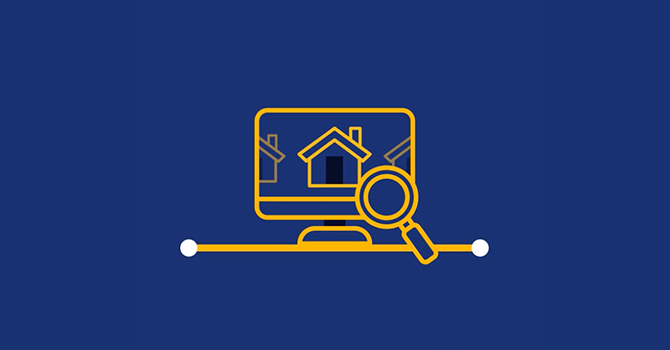How to Apply for a Mortgage, Loan, or Refinance When You’re Self-Employed
Here are our top tips and things to know to help get you to your approved offer or ‘clear to close’ quicker while you’re self employed.


Proving your cash flow as a business owner, contractor, freelancer, or gig worker can require a bit more paperwork compared to the typical salaried employee and can sometimes feel just as daunting as paying down your student loan balances or buying a home. But as long as you’re in good financial standing, demonstrate a strong career trajectory, and can document steady, reliable cash flow while applying for a loan, being self-employed should not stop you from student loan refinancing, buying a home, or refinancing your home.
Here are our top tips and things to know to help get you to your approved offer or ‘clear to close’ quicker while you’re self-employed.
Who is a self-employed borrower?
Self-employment can pertain to more than just those who own their own business. It can include freelancers, contracted workers, seasonal jobs, or any other side job that brings in income and looks like one of the following scenarios:
- You have your own business or any portion of ownership in a business
- You are a contractor or freelancer
- You receive 1099 tax forms
- You are primarily a landlord
Rules and requirements for self-employed borrowers
In addition to proving your employment and income, self-employed borrowers need to meet standard loan borrowing requirements. Guidelines vary by loan product type, but in general, expect to have the following criteria considered in addition to your employment and income:
- Credit score
- Credit history
- Current debts (for your debt-to-income ratio)
What types of income are considered for self-employed borrowers?
Lenders will typically consider any source of documented, taxable income that is stable and consistent. Self-employed income can be considered on its own, or supplemental income on top of a primary income source, but most lenders will require at least two years of documentation.
If you are a healthcare professional, Laurel Road will accept documentation that verifies future employment and guaranteed income, such as a signed contract.
In determining “qualifying” income for self-employment, underwriters use a somewhat complicated formula. They start with your taxable income, and add back certain deductions like depreciation, since that is not an actual expense that comes out of your bank account.
Verifying your self-employed income
In most cases, self-employed applicants will need to provide the following documents to prove or verify their income:
- 2 most recent years’ personal income tax returns (Form 1040)
- If more than 25% ownership in a business: 2 most recent years’ complete business tax returns (Form 1065 for partnerships and multi-member LLC’s, Form 1120S for S corporations, or Form 1120 for C corporations)
- If less than 25% ownership in business: 2 most recent years’ K-1 schedules of the business tax returns (Form 1065 for partnerships and multi-member LLC’s, Form 1120S for S corporations, or Form 1120 for C corporations)
- Year-to-date profit and loss statement (P&L) summarizing revenues, costs, and expenses incurred and dated within the last 90 days
You may already have these documents prepared by your accountant, or tax preparer. Tax professionals are accustomed to these requests for mortgage loan applications and can usually provide these documents with quick turnaround. For student loan refinancing, we offer an easy-to-use profit & loss template if needed.
Explaining income inconsistencies
If your income is not regular and reliable, lenders generally won’t count it. However, many businesses go through ups and downs. For instance, a doctor who starts a new practice may have a lot of up-front expenses one year, such as buying or leasing property, acquiring insurance, purchasing supplies, software, equipment, etc. The business may show little income or even big losses.
If your earnings show an increase or decrease in income of 20% or more year-over-year, be prepared to explain those changes when you apply for a loan as a self-employed borrower.
Do I have to report self-employed income?
If you have a freelance job or small business on the side and you can qualify for a mortgage or student loan refinance based on W-2 income and personal savings alone — not using funds in a business account — then your self-employed income can simply be ignored and does not need to be documented on your application.
For many newer businesses and start-ups, it is common to show losses on paper due to tax write-offs and deductions, which may actually reduce your qualifying income when applying for a loan. Typical deductions however, such as depreciation and owner wages, will be added back into your taxable income if you choose to include your self-employment income on your application.
In providing this information, neither Laurel Road nor KeyBank nor its affiliates are acting as your agent or is offering any tax, financial, accounting, or legal advice.
Any third-party linked content is provided for informational purposes and should not be viewed as an endorsement by Laurel Road or KeyBank of any third-party product or service mentioned. Laurel Road’s Online Privacy Statement does not apply to third-party linked websites and you should consult the privacy disclosures of each site you visit for further information.
Don’t miss the latest financial resources.
This site is protected by reCAPTCHA and the Google Privacy Policy and Terms of Service apply.
Get tailored Laurel Road resources delivered to your inbox.
Search Results


